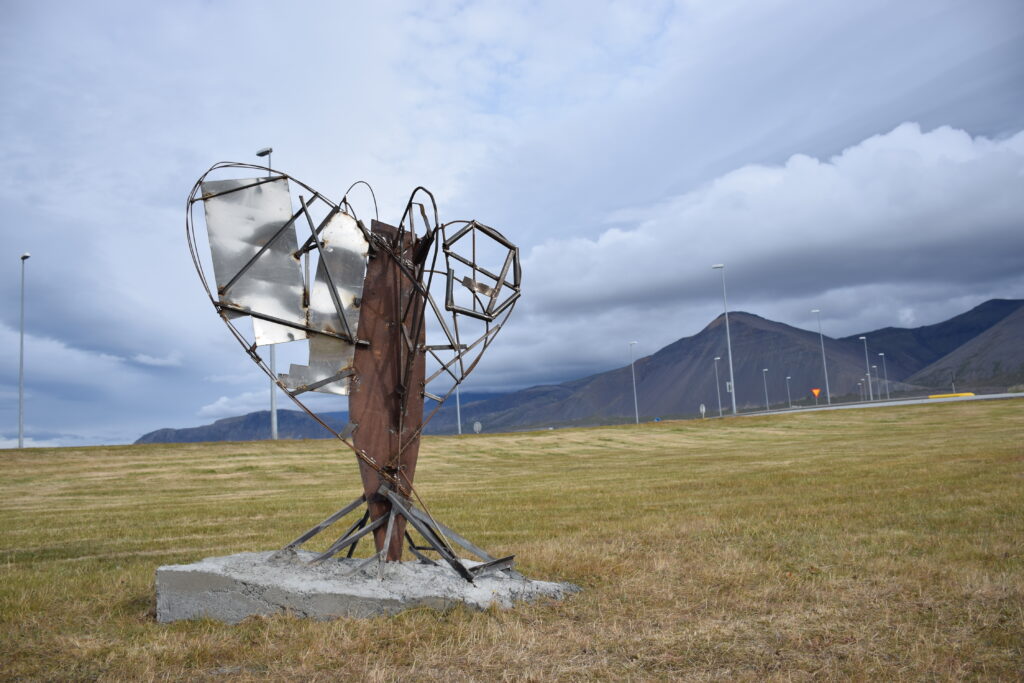
SELFLOVE
2019
was exhibited in the Sculpture Garden in Reykjavík
The work belongs to the artwork series Selflove (2019). The red metal sculptures that surround and burden the subject – the artist, are letters which form the word “sjálfsást”, meaning “selflove”. Each metal letter weighs around 50 kg. This interpretation symbolizes the mass of Earth based on its physical inner core shaped like a heart.
The title of the work belongs to another independent outdoor mural installed on the wall in the Sculpture Garden in Reykjavík at the end of 2019. The work hung until the beginning of the 2020 pandemic. The piece marks a graphical break in life before and after COVID-19, and it is defined as an opportunity to introduce active selflove into our new lives, our new context and our new consciousness. Possibility of a new vision – the beginning of selflove and practice.
Imagine everyone having the selflove virus injected into themselves!
The visual philosophy in this piece deals with selflove not in a romantic way but in biological terms. Love releases the hormone oxytocin – we are indeed born with the ability to create selflove within our natural physical system. We are subject to endless attacks of self loathing from birth to death. Attacks on the natural production of our selflove prevent well-being in our daily lives. When a rupture occurs, an opportunity arises to implement a new mechanism – a new system. Love is not just a cultural system because it exists, but it exists because we are love. The main message is that we are all connected – we are quantum connected even though we cannot see it. Our energy, thoughts and emotions flow daily into one collective equation. We enjoy love and merge into one. We release pheromones, odourless hormones that our bodies perceive and act as a magnet between us. Mankind threatens our own nature in the current context because we do not produce enough selflove. This insecurity is manufactured by historical socio-cultural constructs which do not value to take care of themselves. However, in the last few years, a reversing trend in favour of selflove can be seen.
This work is related to Selflove 2020